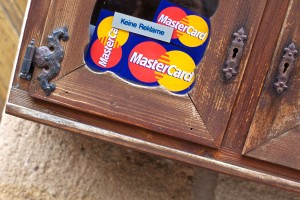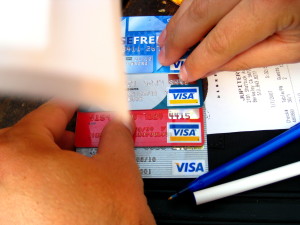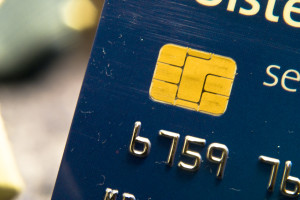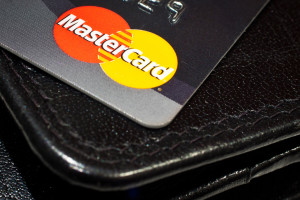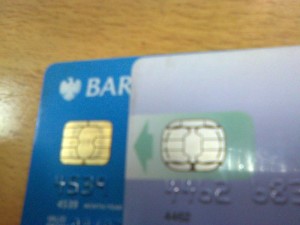Category: EMV EuroPay MasterCard Visa
September 4th, 2014 by Elma Jane
EMV, which stands for Europay, MasterCard and Visa, and is slated to be mandated across the United States starting in October 2015 and automated fuel dispensers have until October 2017 to comply. Unlike magnetic swipe cards, EMV chip cards encrypt data and authenticate communication between the card and card reader. Additionally, chip card user is prompted for a PIN for authentication.
Why are those dates important? Companies lose $5.33 billion to fraud today, with card issuers and merchants incurring 63 and 37 percent of these losses, respectively. Under the EMV mandate, merchants who do not process chip cards will bear the burden of the issuer loss. By accepting chip card transactions, merchants and issuers should see a reduction in fraud.
Overcoming Barriers to EMV Adoption
Given the significant barriers to EMV adoption, it may be tempting for merchants to meet minimum requirements for accepting EMV payments. However, medium to large retailers should also consider the bigger picture of customer security and peace of mind.
Some key critical success factors for a payment initiative of this size include:
Business Continuity Architecture: As with all payment systems, it is imperative to have the EMV system running at all times. The solution should preferably have Active-Active architecture across multiple data centers and have a low Recovery Point Objective (the point in time to which the systems and data must be recovered after an outage).
Cost Benefit Analysis: Take a top down approach and decide accordingly on the scope of the analysis. This will ensure that decisions on scope are made on basis of quantitative data and not just qualitative arguments.
Phased Approach: To overcome time or cost overage in a project of this scope and complexity, retailers should try using an iterative approach for development. The rollout can be divided into multiple releases of six to seven months, which will provide the opportunity to review, capture lessons learnt, and improve subsequent releases.
Proactive Monitoring Alerts: Considering the criticality of business function carried out by EMV, tokenization and payment gateway, a vigorous supervising environment must be defined to perform proactive and reactive monitoring. It should take into consideration the monitoring targets, tools, scope and methods. This will provide advance visibility to the failure points and better ensuring maximum system availability.
Resilience Testing: Typically in a software project, the testing is limited to the unit, integration, performance and user acceptance. However, due to the critical nature of the applications and systems involved, robust resiliency testing is vital. This will ensure that there are no single points of failure and the system remains available when running in error conditions.
Stakeholder Identification: This is a key step to ensure that you have varied perspectives from all departments and their support. It will keep your organization from being blindsided and reduce the risk of disagreements in later stages of the program. Key stakeholders should include Store Operations, Card Accounting, Loss Prevention, Contact Center and IT & Data Security.
Organizations should adopt a five step approach to implement a secure, robust and industry-leading payment solution:
Encryption – Point to point encryption will ensure card data is secure and encrypted from the point of capture to the processor. Usually, merchants use data encryption that is not point to point, rendering their organization vulnerable to data breaches. Software encryption is the most common form of encryption, as it is easily installed and quires little or no hardware upgrades; however, it is less secure, may expose encryption keys, and is prone to memory scanning attacks. Hardware encryption is considered more secure but requires more costly terminal upgrades. Hardware encryption is designed to self-destruct the keys if tampered, but is not well-defined as very limited headway has been made in this space.
Tokenization – Build a Card Data Environment (CDE) that will host a centralized card data storage solution. Only limited applications with firewall access and capability to mutually authenticate via certificates can access CDE and receive card data. The rest of the applications will have tokens which are random numbers. This architecture will ease the merchant’s burden with existing and emerging PCI Data Security Standards.
Payment Gateway – Perform a risk assessment on the current payment gateway and identify gaps in functionality, manageability, compliance, scalability, speed to market and best practices. Determine the alternatives to mitigate the risks. Some of the important aspects of a leading payment gateway solution are support for all forms of credit, debit, gift cards and check transactions. Its ability to work with any acquirer, in-built encryption abilities, support for settlement and reconciliation must also be kept into consideration.
Settlement, Funding and Reconciliation – A workflow-based system to handle chargebacks and the automation of chargeback processing will greatly reduce labor-intensive work and enhance the quality of data used for settlement and reconciliation. Upgrades to the existing receipt retrieval system may be needed.
Card fraud is on the rise in the U.S., and merchants are the primary target for stealing information. With the EMV deadline just over a year away, the responsible retailer must take steps to prepare now. Although EMV implementation might seem overwhelming to merchants, they should start their journey to secure payments rather than wait for a looming deadline. Solutions such as data encryption and tokenization should be used in combination with EMV to implement a robust payment solution to better protect merchants against fraud. By proactively adopting EMV payment solutions, merchants can stay ahead of the regulatory curve and better protect their customers from fraud.
Posted in Best Practices for Merchants, Credit Card Security, EMV EuroPay MasterCard Visa, Payment Card Industry PCI Security, Visa MasterCard American Express Tagged with: authentication, automation, card, card data, Card Data Environment, card fraud, card issuers, card transactions, CDE, chargeback, chargeback processing, check, check transactions, chip, chip cards, credit, customer, customer security, data, data breaches, data encryption, data security, debit, EMV, emv chip cards, EuroPay, fraud, gateway, Gift Cards, host, integration, magnetic swipe cards, MasterCard, Merchant's, payment, payment gateway, payment solution, payment systems, PCI, PCI Data Security Standards, PIN, processor, retailers, Security, software, swipe, terminal, tokenization, tools, visa
August 8th, 2014 by Elma Jane
Apple talking to Visa about mobile payments
Apple is in talks with Visa as it ponders launching a mobile wallet this autumn. The latest bout of rumours suggest that the ability to make instore payments could finally arrive with the iPhone 6, although the information’s sources offer contradictory takes on the technology, with one saying that the system is likely to be NFC-based and another suggesting that it will rely on Bluetooth and WiFi. The report suggests that Apple will not be going down the host card emulation route, instead making use of the Secure Element, although the famously proprietorial tech titan has no intention of giving up any control to wireless carriers. Apple hopes that working with Visa will also help it bypass the payment processing chain, helping it to lower costs for merchants and customers.
Posted in EMV EuroPay MasterCard Visa, Mobile Payments, Smartphone, Visa MasterCard American Express Tagged with: Apple, bluetooth, customers, host card emulation, instore payments, iPhone 6, Merchant's, mobile wallet, nfc, payment processing, secure element, visa, wifi, wireless carriers
August 8th, 2014 by Elma Jane
MasterCard’s latest Card Personalization Validation module in the Collis EMV Personalization Validation Tool qualified by MasterCard, including the U.S. Common Debit AID. The tool will be used to support EMV card issuers in the U.S., and specifically checks if MasterCard cards are correctly personalized according to the latest MasterCard specifications. It also includes specific personalization profiles to certify compliance with the Durbin Legislation. The Collis EMV Personalization Validation Tool is the most thorough and comprehensive test tool for issuers, card personalization bureaus and card manufacturers that want to validate the personalization of their contact/contactless payment cards and mobile payment applications. With the tool, issuers easily check the correctness of the personalization of any EMV card application according to the latest test specifications of the seven major worldwide payment schemes. He added that the Collis EMV Personalization Validation Tool fits also seamlessly to prepare for the MasterCard CPV Formal Approve Service that UL can deliver.
Posted in Credit Card Security, EMV EuroPay MasterCard Visa, Visa MasterCard American Express Tagged with: card, contactless payment, Debit AID, EMV, EMV card, MasterCard, mobile payment, payment schemes
August 8th, 2014 by Elma Jane
Visa Inc., the global leader in payments, is helping U.S. fuel retailers prevent credit and debit card fraud at the pump with intelligent analytics that identify higher-risk transactions that may be fraudulent. Visa Transaction Advisor uses sophisticated analytics based on the breadth and scale of VisaNet data to flag the riskiest transactions by working with fuel companies to understand their needs, creating a new service that builds on Visa’s predictive analytics capabilities, providing fuel merchants with more intelligence to prevent fraud and improve their bottom line. While global fraud rates across the Visa payment system remain near historic lows, less than 6 cents for every $100 transacted – fuel pumps can be targets for criminals because they are often self-service terminals. The new solution, Visa Transaction Advisor (VTA), enables merchants to use real-time authorization risk scores to identify transactions that could involve lost, stolen or counterfeit cards. A pilot test of the new service showed a 23 percent reduction in the rate of fraudulent transactions – all without costly infrastructure upgrades or disruption of the customer experience.
How It Works
After a cardholder inserts the card at the pump, Visa analyzes multiple data sets such as past transactions, whether the account has been involved in a data compromise and nearly 500 other pieces of data to create a risk score. This allows merchants to identify those transactions with a higher risk of fraud and perform further cardholder authentication before gas is pumped. The time and costs associated with resolving fraudulent transactions can be substantial for both merchants and financial institutions and inconvenient for cardholders, which is one of the reasons why fraud prevention is critical. Visa’s solution is easy to implement, using existing message fields and formats as well as pump software or hardware to ensure minimal impact to merchants and acquirers. Several fuel merchants who piloted the technology over the last several months noticed a decrease in fraud, without negatively impacting their consumers’ experience. VTA as a tool help mitigate fraudulent transactions. A 23 percent reduction in the rate of fraudulent chargebacks during a pilot program in Los Angeles. This was done with minimal impact to the customer experience, making secure payment at the pump as convenient as possible. Providing fuel to millions of customers each month through approximately 15,000 service stations in the United States, said US Credit Card Operations Manager, from Shell, considering new solutions and technology it has to have a clear business benefit, be customer-centric and easy to implement. With no infrastructure investment, testing VTA as part of proactive fraud prevention tool-set to better identify fraudulent card activity earlier in the transaction cycle, without inconveniencing customers.
Visa Transaction Advisor is available to merchants through participating U.S. acquirers. Visa has partnered with Vantiv and is also working with other acquirers to offer the service to its fuel clients. Ease of implementation is a critical requirement whenever talking about a new merchant service. Visa Transaction Advisor builds on existing payment infrastructure, is easy to implement and flexible enough to allow customization by merchants.
Posted in Credit Card Security, EMV EuroPay MasterCard Visa, Visa MasterCard American Express Tagged with: account, acquirers, analytics, authorization, card, cardholder, counterfeit cards, credit, Credit Card Operations, customer, data, debit, financial institutions, fraud, higher-risk transactions, Merchant's, payments, Rates, retailers, terminals, transactions, visa, Visa payment, Visa Transaction, Visa Transaction Advisor, VisaNet, VTA
June 16th, 2014 by Elma Jane
Visa announced yesterday a new designation for consumer reload-able prepaid products that aims to simplify and clarify fees, step-up consumer protections and make prepaid solutions a valid tool for getting onto stronger financial footing. Consumers have been confused by an often complex prepaid landscape. As a prepaid leader, it is important to go beyond current requirements in the marketplace and bring transparency to this growing product area. This Visa designation will signify a new level of simplicity, protection and opportunity, enabling cardholders to confidently manage their spending every day.
To qualify for the Visa prepaid designation, prepaid programs must offer things like simplified fees and transparent disclosures of them. The new designation also bans some types of feeing such as transaction decline fees, customer service fees or overdraft protection (which is not to be offered) fees among others. Once designated, cards products will receive a seal that will be visible on card packaging and materials.
Visa’s efforts to raise the bar on quality in the prepaid industry by building Compass Principles are vital because millions of Americans are searching for tools to help them reduce financial friction, and prepaid cards can be a valuable option.
Posted in Best Practices for Merchants, EMV EuroPay MasterCard Visa, Visa MasterCard American Express Tagged with: consumer, customer service fees, overdraft protection fees, prepaid products, prepaid solutions, simplified fees, transaction decline fees, visa
June 9th, 2014 by Elma Jane
Some American banks and financial institutions, like JPMorgan Chase, American Express and Citi, have already issued credit cards with new security technology. Other banks will do so by the end of the year. Often referred to as E.M.V. (short for Europay, MasterCard and Visa) or chip-and-PIN, these new cards use a combination of an embedded microchip and a personal numeric code to authorize payment transactions. Depending on the card issuer, some cards may have the chip but require just the old-fashioned signature instead of a PIN.
Most traditional credit cards in the United States today use a magnetic strip and a customer signature to seal a deal. The information embedded in the stripe can be easily cloned, however, and signatures can be forged. The chips in the newer E.M.V. cards which encode account information when transferring it to the merchant are harder to duplicate. The PIN must be entered for each charge, which helps make the cards more secure for in-person purchases. The cards are not infallible, though, criminals have still found ways to steal PINs and make fraudulent online purchases.
With new types of credit cards come new payment terminals, and many retailers must upgrade their equipment to make it compatible with E.M.V. cards. Instead of a slot to swipe the strip, the new credit card terminals typically need a chip reader. Most merchants will probably have the new equipment in place by October 2015, when new rules about fraud liability kick in. Under these rules, the bank or the merchant could be held accountable for any fraudulent charges if one of them has not upgraded to the new system. The party with the weaker security measures must pay.
Posted in Best Practices for Merchants, Credit card Processing, Credit Card Reader Terminal, Credit Card Security, EMV EuroPay MasterCard Visa, Visa MasterCard American Express Tagged with: account information, American banks, American Express, card issuer, cards, chip, Chip and PIN, chip reader, Citi, credit card terminals, credit cards, E.M.V., embedded microchip, EuroPay, financial institutions, fraud liability, JPMorgan Chase, magnetic strip, MasterCard, merchant, numeric code, payment terminals, payment transactions, PIN, Security, visa
June 4th, 2014 by Elma Jane
The operator of a gold vault on the Isle of man is to issue a credit card made of solid gold that enables customers to draw down cash on their holdings of the valuable metal. The 14-carat Visa gold card from IMGold will be made available to clients who have at least £100,000 of the metal bars in their vault. The idea is that customers can use the card to borrow against their reserves, effectively hedging against a decline in the value of gold.
IMGold is currently inviting applicants for the blinged up store of wealth under the banner: The card that carries more weight.
The Isle of man is some way behind Kazakhstan’s oligarchs, who have been brandishing gold and diamond-encrusted cards for some year now. MasterCard and Kazkommertsbank introduced their own diamond-encrusted card in the province back in 2008. This was followed in 2012 by the launch of Visa Infinite Exclusive cards – made of pure gold, with pearl embossing and 26 diamonds – by Sberbank for its top 100 customers in the energy-rich country.
Posted in EMV EuroPay MasterCard Visa, Visa MasterCard American Express Tagged with: card, credit-card, IMGold, MasterCard, reserves, visa, Visa gold card, Visa Infinite Exclusive cards
May 29th, 2014 by Elma Jane
New enhancements intended to provide its U.S. cardholders with greater protection from fraud and identity theft has been announced by MasterCard.
All MasterCard credit, debit, prepaid and small business cards issued in the U.S. will now carry Identity Theft Resolution assistance. MasterCard new program will provide help in canceling missing cards and alerting credit reporting agencies, as well as targeting searches to detect if stolen personal and confidential data appears online. The new Identity Theft coverage extension begins in July 2014.
MasterCard is also extending its zero liability policy in the U.S. to include all MasterCard PIN-based and ATM transactions. This is in addition to coverage already provided on signature debit and credit transactions. The Zero Liability coverage extension takes effect in October 2014.
Fraud prevention and detection is a 24/7 job at MasterCard. The changes in cardholder protection is a combined efforts to move the U.S. payments industry to EMV chip technology will help deliver safer shopping experiences to consumers. MasterCard noted that tanks and financial institutions issuing MasterCard-branded cards provide financial indemnity against fraud.
Posted in Credit card Processing, Credit Card Security, EMV EuroPay MasterCard Visa, Visa MasterCard American Express Tagged with: ATM transactions, business cards, cardholders, credit, credit reporting agencies, credit transactions, data, debit, EMV, EMV chip technology, financial institutions, fraud, Fraud prevention, identity theft, Identity Theft Resolution assistance, MasterCard, payments industry, PIN, prepaid, zero liability policy
May 23rd, 2014 by Elma Jane
State senate in California is advancing a bill SB 1351, mandates April 1, 2016, that would require California-based bankcard issuers and retailers to adopt Europay/MasterCard/Visa (EMV) chip card technology. SB 1351 bill is introduced March of 2014, passed out of committee on May 6 and may be voted on by the full senate as early as tomorrow, May 22nd.
Additionally, the bill specifies that any contracts entered into by financial institutions and card brands on or after Jan. 1, 2015, would have to include the provision that any new or replacement cards issued after April 1, 2016, be EMV compliant. The rationale for the bill comes from oft-cited evidence that EMV cards substantially reduce fraud.
In April 2014, Sen. Hill stated, My legislation holds all stakeholders accountable to protect consumers from scam artists who use fake cards to game the system.
The Electronic Transactions Association, however, does not see the issue the same way. Passing a single state technology standard will open the floodgate to additional state responses and create an expensive, unsafe and inefficient myriad of technology standards, the ETA said. The ETA is urging payment professionals in California to contact their legislators and let their opinions be heard.
The bill initially mandated Oct. 1, 2015, as the deadline for EMV implementation, which is the date set by Visa Inc. and MasterCard Worldwide for retailers to be EMV complaint or face potential fines in case of fraud. The bill also makes exceptions for small retailers and convenience stores/gas stations; they have until Oct. 1, 2017, to transition to EMV.
Posted in Best Practices for Merchants, Credit card Processing, EMV EuroPay MasterCard Visa Tagged with: bankcard, card brands, card technology, cards, chip, consumers, Electronic Transactions Association, EMV, EMV compliant, EMV implementation, ETA, Europay/MasterCard/Visa, fake cards, financial institutions, fraud, MasterCard, payment professionals, retailers, scam, small retailers, technology standards, Visa Inc.
May 7th, 2014 by Elma Jane

NTC’s New Approach On Payment Processing brings Client Satisfaction
About NTC (National Transaction Corporation)
NTC is a credit card processing company that was built uniquely. Combining leading edge technology with passion for customer service, as well as service to help customers maximize the value of their merchant service program. NTC provides sales agents, financial institutions and merchants with benefits not available from other providers, such as next day funding with a late cut-off time and unparallel graphical and web-based reporting.
To learn more visit http://www.nationaltransaction.com or call 888-996-2273.
Marking a 65% increase over 2012 NTC now serves approximately 15,000 businesses.
This rapid growth was driven by the many unique benefits that NTC offers its merchants and sales partners, ranging from best technology to superior customer service.
The major differentiators made possible by NTC’s proprietary back-end processing system is the Next Day Funding Service. Because NTC connects directly to the following: Amex, Discover, MasterCard and VISA. This way sales partners and merchants are able to avoid the middleman and go straight to the source of all their processing needs. This also means that the merchants can batch out their terminal POS with one of the latest cut-off times in the industry by as late as 11:00 pm Eastern.
NTC’s another appealing factor to new sales partners and merchants is its merchant connect online reporting system. It provides 24/7 access to graphical account information through a system that is fast easy and secure. Merchants are now able to clearly see and understand their payment processing costs. ISO’s have access to sugar CRM to make notes and see Merchant Marketing Data. Card Numbers are secure on the banks server so our faculty has credentials to access the bank servers.
Independent sales organizations (ISOs) and Merchant sales professionals continue to choose NTC as their payment processing partner to obtain these unique benefits. In addition to industry-leading technology, NTC offers its merchants and sales partners a level of personalized support that is not easily found among other credit card processing companies. They get round the clock account and terminal support. Collective hard work and determination helped NTC grow faster in the industry, resulted in more loyal ISO sales partners who are submitting more applications. Looking forward for continued success for NTC, its sales partners and merchants.
Posted in Credit card Processing, EMV EuroPay MasterCard Visa, Financial Services, Merchant Account Services News Articles, nationaltransaction.com, Point of Sale, Visa MasterCard American Express Tagged with: amex, back-end processing, bank, bank servers, card, card numbers, credit card processing, credit-card, customer service, Discover, financial institutions, marketing data, MasterCard, merchant, merchant connect, merchant service, next day funding, payment processing, POS, provider's, sales agents, sales partners, sugar CRM, terminal, visa, web-based


